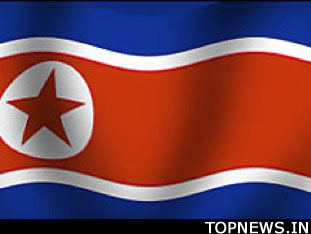US confirms North Korea loading rocket onto launch pad
 Washington - North Korea is loading a Taepodong missile onto a launch pad ahead of what Pyongyang said is a plan to place a satellite into space, a US official confirmed.
Washington - North Korea is loading a Taepodong missile onto a launch pad ahead of what Pyongyang said is a plan to place a satellite into space, a US official confirmed.
"It is out there," the counter-proliferation official said Wednesday. "It's the latest indication the North Koreans are moving forward with their announced plans to launch."
The official confirmed earlier Japanese media reports that the rocket was being moved onto the launch pad for North Korea's announced April 4-8 launch.
The United States, South Korea and Japan have said the launch is a guise for testing a ballistic missile, the Taepodong-2, theoretically capable of reaching the US state of Alaska.
Images taken by a US satellite showed that North Korea had moved the rocket onto the launch pad at Musudan-ri, its launch site on its east coast, the South Korean newspaper Chosun Ilbo on Thursday quoted a government official in Seoul as saying.
"Technically, it'll be possible to launch it in three or four days," he said.
It was not known yet whether the rocket is the same Taepodong-2 that North Korea test-fired in a failed launch in 2006 or whether it is an improved version of the same missile.
US Secretary of State Hillary Rodham Clinton said a launch would be regarded a "provocative act" and warned Pyongyang that there would be consequences if it goes ahead with the planned launch.
"We have made it very clear that the North Koreans pursue this pathway at a cost and with consequences to the six-party talks, which we would like to see revived and moving forward as quickly as possible," Clinton said Wednesday during a visit to Mexico City, referring to stalled six-nation talks aimed at dismantling North Korea's nuclear weapons programme.
She added that the United States regarded North Korea's actions as a violation of UN Security Council resolutions.
A spokesman for South Korea's Defence Ministry did not confirm the reports that the rocket was being moved to the launch pad, saying only that North Korea was moving full steam ahead with preparations for the launch.
Such a launch would be seen as "a serious challenge and provocation to the security on the Korean Peninsula and the North-East Asian regional stability," the spokesman said.
North Korea said the rocket is meant to carry a communications satellite into orbit. It comes amid North Korea threats against South Korea and has increased tensions in the region.
North Korea warned Wednesday that it would stop participating in the six-nation talks if it is subjected to more sanctions in response to a launch. The United States and South Korea said launching the rocket would violate a 2006 UN Security Council resolution.
"The UN Security Council made it clear that ballistic missile technology that is used for launching satellites or launching missiles is, in effect, the same and held North Korea to a commitment not to engage in ballistic missile testing," State Department deputy spokesman Gordon Duguid said.
South Korea said its Stalinist neighbour would be taken before the UN Security Council if it carries through with the launch, but Duguid would not say whether Washington would seek additional sanctions if Pyongyang proceeds with the test.
"I'm not going to predict what our reaction would be to something that hasn't taken place yet," he said.
Chinese and South Korean officials met this week in Beijing to discuss a unified stance against the possible launch, but South Korean envoy Wi Sung Lac said they disagreed about what that response should be.
After North Korea last fired a Taepodong-2 in July 2006, which was followed three months later by its first, and so far, only nuclear test, the UN Security Council imposed sanctions on its communist regime and warned it not to carry out further nuclear or missile tests.
The other five participants in the six-nation talks - the United States, South Korea, China, Japan and Russia - tried last week to dissuade North Korea from its announced launch. Pyongyang reacted by warning that new sanctions would spell the end to the six-party negotiations on its denuclearization. Earlier, its army also threatened retaliation should an attempt be made to shoot down its rocket. (dpa)